OpenAI co-founder Sam Altman makes stunning return to revamped board of directors after months of leadership turmoil where he was fired then rehired days later as ChatGPT maker vows to ‘get stronger’
OpenAI reinstates Sam Altman to the board and has “full confidence” in his leadership, reversing all the turmoil of the past four months.
Altman was brought back after the conclusion of an outside investigation into the dramatic ChatGPT saga in November.
The company retained law firm WilmerHale to investigate what led to the company abruptly firing Altman in November, only to rehire him days later.
After months of investigation, it emerged that Altman’s ouster was a “result of a breakdown in the relationship and loss of trust” between him and the previous board, OpenAI said on Friday. The full report was not released.
OpenAI reinstates Sam Altman to the board and has ‘full confidence’ in his leadership, reversing all the turmoil of the past four months
OpenAI also added three women to its board of directors: Sue Desmond-Hellman, former head of the Bill and Melinda Gates Foundation; Nicole Seligman, former general counsel of Sony; and Instacart CEO Fidji Simo.
The San Francisco artificial intelligence company is trying to show investors and customers that it is trying to move past the internal conflicts that nearly destroyed it and made global headlines last year.
“I’m glad this whole thing is over,” Altman told reporters Friday, adding that he was disheartened to see “people with an agenda” leaking information in an attempt to harm the company or its mission and “against us to set each other up’.
Altman said he learned from the experience and apologized for a dispute with a former board member that he could have handled “with more grace and care.”
“The OpenAI team has been so focused and resilient during this time,” he said. ‘I have learned a lot from this experience… I would like to continue with the new board members.’
“I am confident that they will make an important contribution to the mission.”
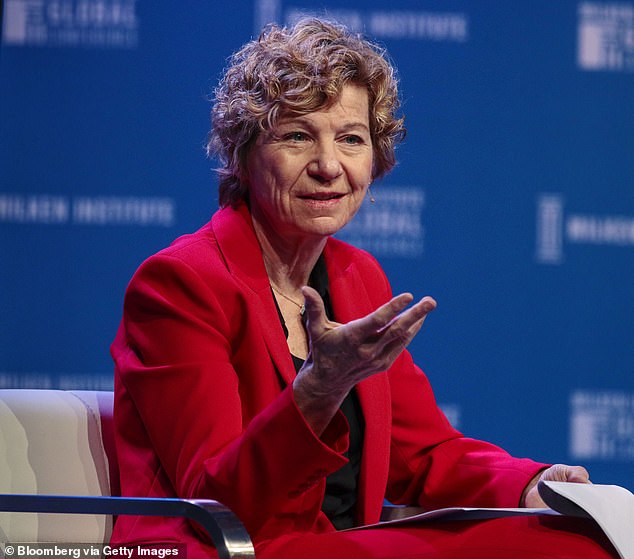
Sue Desmond-Hellman, former head of the Bill and Melinda Gates Foundation, joined the OpenAI board
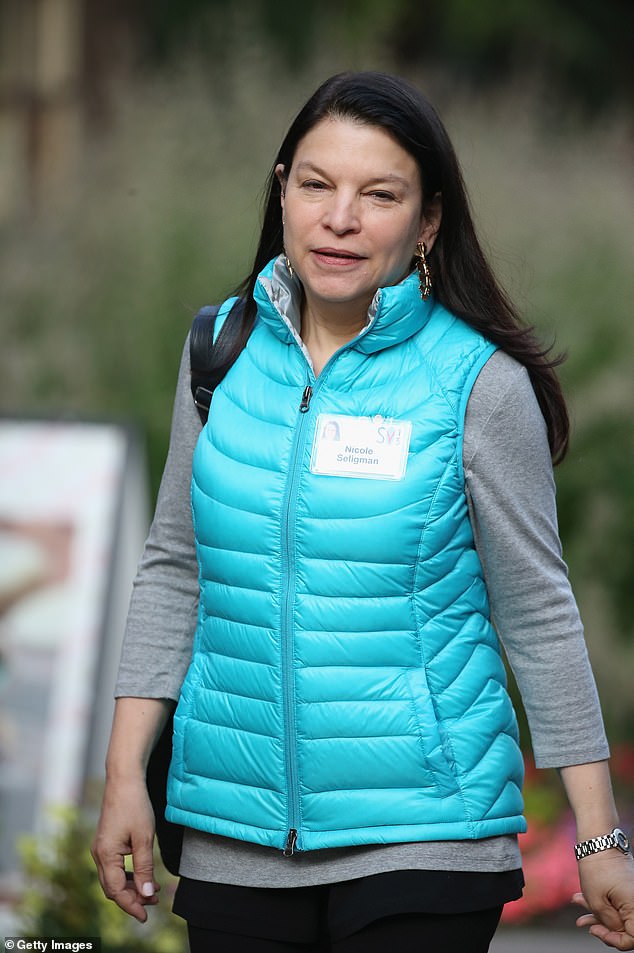
Nicole Seligman, former general counsel of Sony, was also added to the board
For more than three months, OpenAI said little about what led its then-board of directors to fire Altman on November 17.
An announcement that day said Altman “was not consistently forthcoming in his communications” in a manner that hindered the board’s ability to carry out its responsibilities.
He was also removed from the board, along with the chairman, Greg Brockman, who responded by quitting his job as president of the company.
Many of the conflicts at OpenAI are rooted in its unusual governance structure.
Founded as a non-profit organization with a mission to safely build futuristic AI that helps humanity, it is now a fast-growing major corporation that is still governed by a non-profit board bound by its original mission.
The investigation found that the previous board acted at its discretion, but it also determined that Altman’s conduct did not mandate removal,” OpenAI said.
It said both Altman and Brockman remained the right leaders for the company.
“The investigation revealed that there was a significant breach of trust between the previous board and Sam and Greg,” Bret Taylor, chairman of the board, said Friday.
“And similarly, he concluded that the board acted in good faith, that the board at the time believed its actions would mitigate some of the challenges it saw and that it had not anticipated some of the instability.”
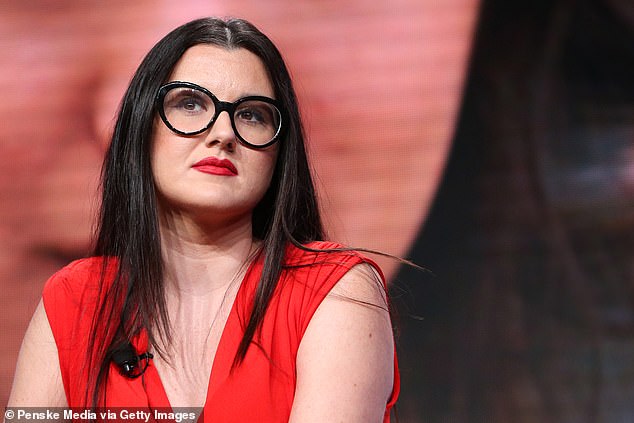
Instacart CEO Fidji Simo was the third new appointment to OpenAi’s board
“We unanimously concluded that Sam and Greg are the right leaders for OpenAI.
“I am pleased to welcome Sue, Nicole and Fidji to the OpenAI Board of Directors… We will become stronger and more stable with a strong board and governance.
“Their experience and leadership will enable the board to oversee OpenAI’s growth and ensure we pursue OpenAI’s mission to ensure that artificial general intelligence benefits all humanity.”
Days after his surprise resignation, Altman and his supporters — with support from most of OpenAI’s workforce and close business partner Microsoft, which has since invested $13 billion in the company to take 49 percent of control — helped orchestrate a comeback.
Altman and Brockman were returned to their executive positions, and board members Tasha McCauley, Helen Toner and another co-founder, Ilya Sutskever, were forced out.
Sutskever retained his job as chief scientist and expressed regret for his role in ousting Altman.
“I think Ilya likes OpenAI,” Altman said Friday. He said he hoped they would continue to work together, but declined to answer a question about Sutskever’s current role at the company.
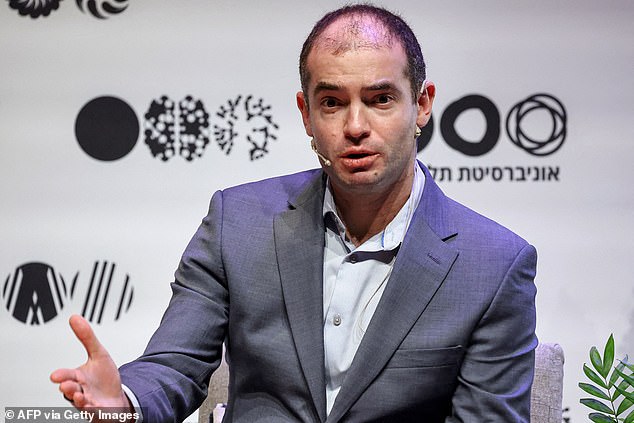
Ilya Sutskever led the failed coup to Altman, who returned days later after an uprising by employees and shareholders, but kept his job.
Altman and Brockman did not regain their board seats when they rejoined the company in November.
But an “initial” new board of three men was formed, led by Taylor, a former Salesforce and Facebook executive who was also chairman of Twitter’s board before Elon Musk took over the platform.
The others are former US Treasury Secretary Larry Summers and Quora CEO Adam D’Angelo, the only member of the previous board to remain.
Both Quora and Taylor’s new startup, Sierra, operate their own AI chatbots that rely in part on OpenAI technology.
After acquiring the law firm in December, OpenAI said WilmerHale conducted dozens of interviews with the company’s previous board, current executives, advisors and other witnesses.
The company also said the law firm reviewed thousands of documents and other company actions.
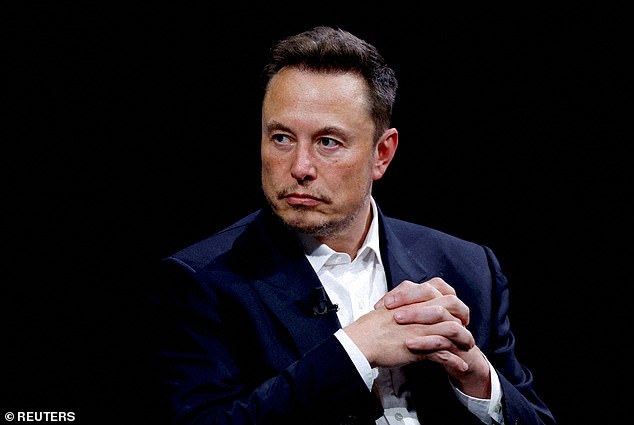
Elon Musk filed a lawsuit against OpenAI last week for seeking profit by partnering with Microsoft for $13 billion and keeping the code for its latest generative AI products secret
The board said it would make “improvements” to the company’s governance structure, adopt new corporate governance guidelines and strengthen the company’s policy on conflicts of interest.
OpenAI would also create a whistleblower hotline that would allow employees and contractors to file anonymous reports and create additional governance committees.
The company continues to face other problems, including a lawsuit filed by Musk, who helped fund OpenAI’s early years and co-chaired its board of directors after its founding in 2015.
Musk claims the company betrayed its founding mission in the pursuit of profit.
Legal experts expressed doubts about whether Musk’s arguments, centered around an alleged breach of contract, would hold up in court.
But it has already exposed the company’s internal conflicts over its unusual governance structure, how “open” it should be about its research and how to pursue what’s known as artificial general intelligence, or AI systems that are just as can perform as well as – or even better. then – people in a wide range of tasks.
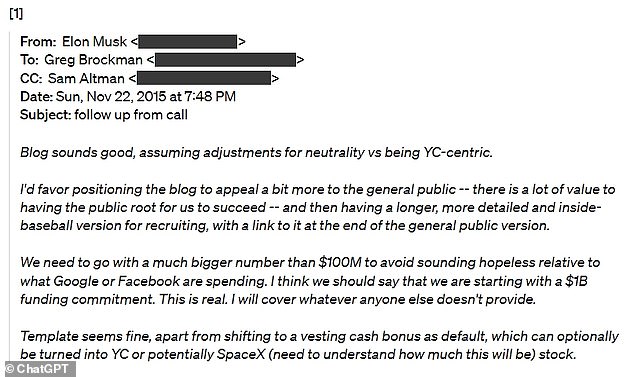
In November 2015, Elon Musk wrote that the company needed $100 million to avoid “sounding hopeless”
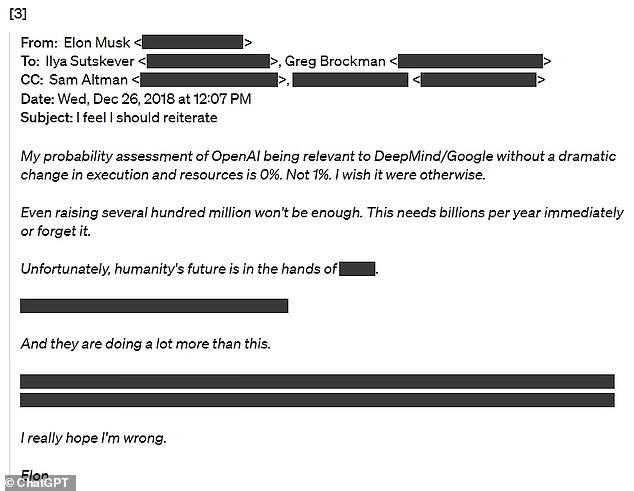
In a December 2018 email, Musk told Altman and other executives that the company needed to make “billions a year”
Federal regulators are also investigating whether OpenAI investors were misled during Altman’s shocking ouster and quick return.
The Securities and Exchange Commission sent a subpoena to the maker of ChatGPT in December, and Altman’s internal communications are being combed.
The SEC did not point to any specific statement or communication by Altman that it found misleading.
SEC officials in New York asked some senior OpenAI executives to preserve internal documents while they conducted the investigation.
Taylor OpenAI’s “mission-driven nonprofit” structure would not change as it continued to pursue its vision of artificial general intelligence that benefits “all humanity.”
“Our duties are primarily focused on the mission, but the company – this great company that we are in now – was created to serve that mission,” he said.
